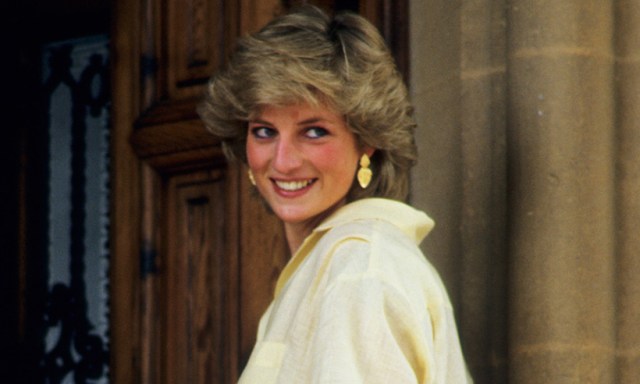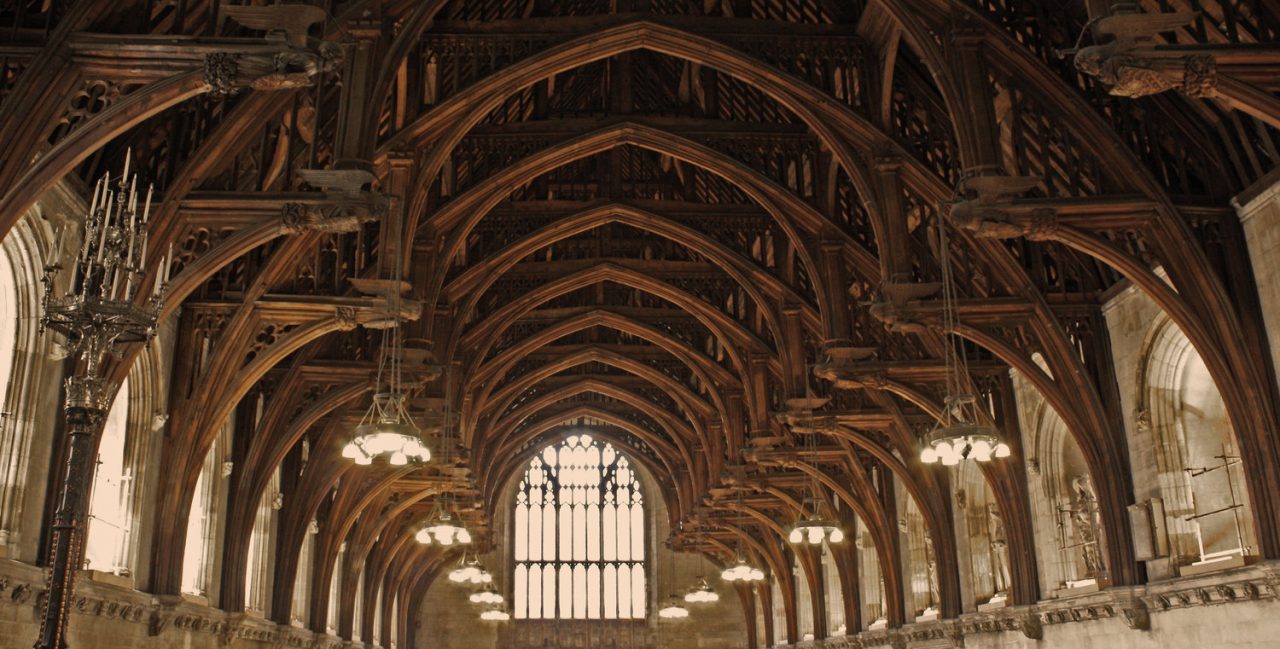
If you’re wondering what the Duke of Cambridge and Prince Harry are up to today, they’re at Althorp in Northamptonshire, the burial site and childhood home of their late mother, Diana, Princess of Wales. On what would have been her 56th birthday, the Archbishop of Canterbury is conducting a private re-dedication of her grave for her family, including her two sons, the Duchess of Cambridge, Prince George and Princess Charlotte. Diana’s brother, Earl Spencer, is apparently also in attendance, as are, presumably, other members of the Spencer family.

Spencer recently invested in an “extensive redesign” of Diana’s memorial, signifying some of the most considerable work that’s happened on the estate in 350 years. Notably, the move didn’t come before the Spencer family had been called out for neglecting the grave site and Oval Lake. Diana’s former chef tweeted about the issue back in 2014:

On the actual 20th anniversary of Diana’s death, a statue will be unveiled at Kensington Palace, her home following her marriage to the Prince of Wales, and where William, Kate and Harry all currently live. The move has been viewed as not only a way to mark the passage of time, but to make up for what many have seen as insufficient respect paid to Diana’s memory by the Royal Family.

It’s a dynamic that William and Harry have opened up about more and more over the last several months – their ability and willingness to talk about their mother, and their candor about how her early death affected them both.
There has been consistent criticism of the House of Windsor in the last 20 years that they haven’t done enough to honor Diana’s memory – that they are attempting to whitewash her from the history books because she called attention to their weaknesses. In many ways it’s a holdover from the days immediately after her death when the Royal Family was sharply rebuked for attempting to handle the event as a private matter as opposed to state mourning.

Taking a step back from Diana’s reputation and the personalities at play and it’s a slightly bizarre situation. On one level, it’s understandable why the Queen and those in her immediate circle would view Diana’s passing as personal. She wasn’t the Princess of Wales then, so much as the Prince of Wales’s ex-wife and the mother of the future king. Strictly speaking, she wasn’t a member of the Royal Family and, famously, she had lost her HRH.
That, of course, didn’t capture the mood of the crowd at the time – a dynamic we’ll return to some other time – and it was a misreading of Diana’s impact on the UK. It was a moment that required following the spirit of the law, not the letter of it. Objectively, the Queen didn’t do anything wrong; subjectively, she failed to lead her people when they needed her to.

Why the Royal Family has been hesitant to draw on Diana’s memory isn’t that complicated. Much as when she was alive, their culture up until recently equipped them not at all to deal with her and what she symbolized. It was messy and painful and, frankly, something better left alone and so it was.
That is one reading of it at least. You could also argue that they still viewed her loss as a private matter, or rather, a loss better addressed by her sons. For all that Diana was in the RF, she wasn’t a Windsor – she was a Spencer, particularly after her divorce.
And then there is the fact that a few members of the RF didn’t like her too much. The Queen Mother and Princess Margaret were alive for another five years after Diana’s death, two Windsor stalwarts who had ended up wildly opposed to the younger woman. When you consider the Queen Mother’s role in the Abdication Crisis in 1936 and Margaret’s decision to choose public duty over love in 1955, it’s not too hard to figure out why their outlooks weren’t aligned. Rumor has it the Princess Royal was never a huge fan, and while my sense is that the Queen and the Duke of Edinburgh never disliked Diana, they had also suffered at the hands of the Wales marriage.

My guess is that it comes back down to the second reason at the end of the day. The Windsors haven’t viewed her as theirs to claim and her sons were children. This summer the BBC will air a documentary on Diana with input from William and Harry. Quotes shared with media capture the men’s opinion that they feel like they failed their mother, having not been able to do anything to “protect” her. They were 15 and 12 at the time of her death, so I think it’s fair to say no one would blame them for not being able to do more for her immediately before and after her death.
As for the last two decades, it’s an interesting sentiment. One could argue, William has been an adult since 2000 – that he could or should have spoken out against the myriad books, tabloid stories, television shows and movies that have painted Diana as mentally unstable, a diva, a conniving Lady Macbeth figure, to name just a few. Of course, I would hope no one would because that would be wildly unfair.

I think it has taken nearly this long for William and Harry to not only have the emotional and mental wherewithal to address their feelings about their mother’s death with some detachment, but to be able to connect standing within the RF to a clear idea of what they wanted. William needed to get married, have his children and create a happier family. Harry needed to come to terms with his position within the family and how he wanted to use it.
There’s a rumor that 20 years ago Harry begged to be allowed to go to Paris to collect Diana’s body and Charles refused it, believing it was too much for a boy of 12. There’s a similar story about a struggle on the day of her funeral over who would walk – the brother, the ex-husband, the former father-in-law and the children. Spencer was livid with the RF, Charles well knew he was about to spend the next years being publicly flogged, Philip was trying to do the right thing by the monarchy and his grandchildren and the boys were just that, boys. The men in Diana’s life were strange bedfellows, to say the least. They weren’t old enough to claim her body then and up until now, they haven’t been old enough to claim her legacy.

Today they are and that’s what we’ve been seeing. Her memory invoked in interviews, respectfully and with warmth. Her name given as one of her granddaughter’s. Her likeness in front of the palace in which she lived. Her work remembered. Her life honored.
Silence from the Royal Family was never really disrespect. It’s only that there are just two people meant to care for her afterlife: William and Harry.


I recently found your blog & I’m beyond impressed with your work. Actually, its become a family joke that “Mom is busy reading that new royal blog again…” This post in particular was a tremendously well-written take on Diana’s legacy. Thank you for your contribution to my lifelong Anglophilia!! 🙂
Thank you so much for leaving a note – this was so nice to read 🙂